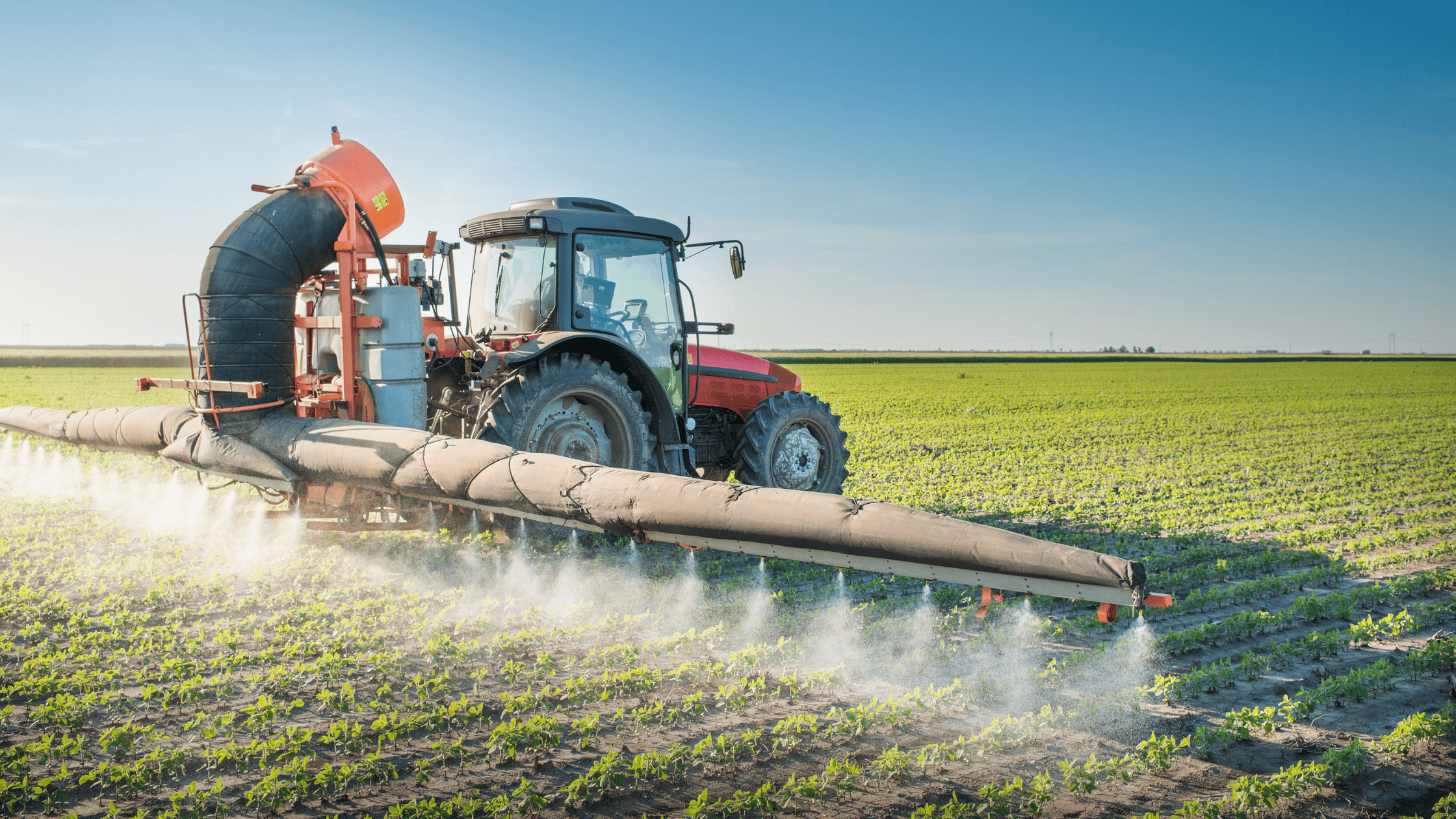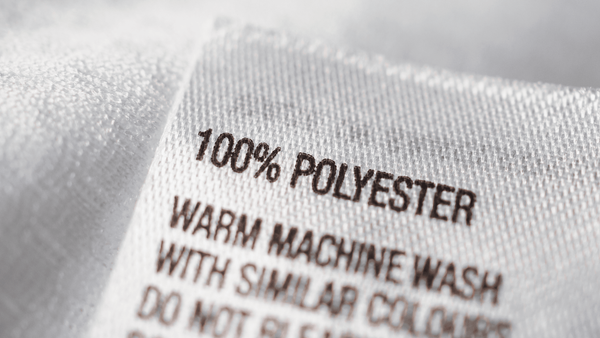How Bayer is Rewriting the Rules on Pesticide Liability
The USDA's Emergency Commodity Assistance Program offers up to $10 billion in direct payments to farmers for the 2024 crop year. With payment rates ranging from $29.76/acre for soybeans to $84.74 for cotton, ECAP provides critical relief for producers facing rising costs and falling prices.

In America's heartland and beyond, a quiet but profound transformation of our legal landscape is unfolding. Chemical giant Bayer AG is orchestrating an aggressive multi-state campaign to shield itself from liability for health impacts linked to its flagship herbicide Roundup. This strategy, which has already succeeded in states like Georgia and North Dakota, threatens to fundamentally alter Americans' right to seek justice when harmed by dangerous products.
What you'll learn in this article:
✔️ How Bayer is using state legislation to shield itself from Roundup lawsuits
✔️ Why Georgia's Senate Bill 144 represents a turning point in pesticide liability
✔️ The controversy behind glyphosate's cancer links & regulatory insights
✔️ How Iowa's proposed legislation threatens high cancer rate accountability
✔️ The massive financial stakes driving Bayer's aggressive lobbying campaign
✔️ How regenerative agriculture offers a chemical-free path forward
Pesticide Liability: The Corporate Immunity Playbook
Bayer's legislative strategy follows a clear pattern: push state laws that prevent lawsuits alleging failure to warn consumers about health risks, provided their product labels comply with federal regulations. Georgia's Senate Bill 144, which recently passed with bipartisan support for pesticide liability immunity and awaits the governor's signature, exemplifies this approach.
The bill's mechanics are straightforward but consequential:
- Manufacturers cannot be held liable for health impacts if labels meet EPA requirements
- State warning requirements are preempted by federal standards
- Plaintiffs face nearly impossible barriers to justice through traditional legal channels
This isn't just happening in Georgia. Similar "pesticide immunity" legislation has been introduced in at least 21 other states, including Iowa (Senate Study Bill 1051), North Dakota, and Tennessee. The Iowa bill, reintroduced in January 2025 after failing to pass in 2024, would create the same liability shield that Georgia just approved.
Why Now? The $16 Billion Motivation
Bayer's legislative push comes as no surprise when you consider the company faces over 177,000 lawsuits nationwide related to Roundup's active ingredient, glyphosate, which has been linked to non-Hodgkin lymphoma.
The financial stakes are enormous:
- Bayer has already set aside $16 billion to settle cases
- A recent Georgia jury awarded plaintiff John Barnes $2.1 billion ($65 million in compensatory damages and $2 billion in punitive damages)
- CEO Bill Anderson has described Roundup lawsuits as an "existential threat" to the company
The timing of Georgia's legislation is particularly notable given the massive verdict against Bayer in that state. By establishing that EPA-approved labels satisfy state warning requirements, SB 144 could substantially reduce Bayer's exposure to "failure-to-warn" lawsuits in Georgia going forward.
The Scientific Divide
The battle over glyphosate centers on conflicting scientific assessments:
- In 2015, the International Agency for Research on Cancer (IARC) classified glyphosate as "probably carcinogenic to humans"
- Multiple studies have found associations between glyphosate exposure and increased risk of non-Hodgkin lymphoma
- A 2023 study in the journal Leukemia and Lymphoma confirmed a statistically significant increased risk between non-Hodgkin lymphoma and glyphosate exposure
Meanwhile, Bayer's defense relies heavily on regulatory positions:
- The EPA maintains glyphosate is "not likely to be carcinogenic to humans" when used according to label directions
- Bayer cites over 1,500 studies (many industry-funded) that purportedly confirm glyphosate's safety
- The company dismisses independent research as "junk science"
This scientific disagreement forms the backdrop for the current legislative strategy. By elevating the EPA's assessment above independent research and courtroom evidence, these laws effectively silence scientific debate in the legal arena.
Beyond Cancer: Iowa's Agricultural Crisis
What makes Iowa's pending legislation (SSB 1051) particularly troubling is the state's existing public health crisis:
- 21,000 new cancer cases projected for 2024
- 6,100 annual cancer deaths
- Non-Hodgkin lymphoma rates 20% above the national average
- Iowa has the nation's second-highest cancer rate
Despite these alarming statistics, the bill has gained traction, advancing through the Senate subcommittee and Judiciary Committee along party lines. If passed, it would shield pesticide manufacturers from lawsuits in a state particularly vulnerable to the health impacts of agricultural chemicals.
The Lobbying Machine
Bayer has deployed a sophisticated influence campaign to advance its legislative agenda:
- $8.47 million spent on federal lobbying in 2024 alone
- Additional funds directed to state-level campaigns
- Leadership of the Modern Ag Alliance (75+ agricultural groups)
- Strategic messaging framing these bills as protecting farmers' access to "essential tools"
In Iowa, Bayer has four registered lobbyists working directly with legislators. The company's strategy involves positioning these liability shields as pro-farmer rather than pro-corporation - a narrative that obscures who truly benefits.
What's at Stake: People vs. Pesticides
These legislative efforts represent a fundamental shift in how we balance corporate interests against public health. At stake is a basic principle: should companies be held accountable when their products cause harm?
The consequences extend beyond just legal liability:
- Public Health Impact : By removing accountability, these laws may reduce incentives for developing safer alternatives to harmful chemicals.
- Farmer Autonomy : Despite claims these bills protect farmers, many agricultural producers oppose them. As Will Harris from White Oak Pastures in Georgia stated: "Farmers deserve to have the right to sue chemical manufacturers when their land, property, or family is injured by chemicals."
- Scientific Integrity : When legislation elevates one scientific assessment (EPA's) above all others, it undermines the essential role of scientific debate and emerging research in public health protection.
Consumer Rights : These laws effectively prevent consumers from seeking justice when harmed by products that manufacturers knew or should have known were dangerous.
The Regenerative Alternative
As Bayer fights to shield itself from liability, a growing movement offers a different path forward. Regenerative agriculture emphasizes practices that build soil health and natural immunity without reliance on synthetic herbicides like Roundup.
These approaches demonstrate superior resilience through:
- Building soil health through cover cropping and crop rotation
- Enhancing biodiversity to naturally manage weeds and pests
- Prioritizing human and ecological health over chemical interventions
While industrial agriculture points to Roundup as essential for modern farming, regenerative practitioners across the country demonstrate that productive, profitable agriculture is possible without heavy reliance on potentially harmful chemicals.
The Path Forward
As states consider Bayer's legislative proposals, citizens have an opportunity to engage in this consequential debate. Here's how you can make a difference:
If your state is considering pesticide immunity legislation:
- Contact your representatives and express your opposition
- Share personal stories about how agricultural chemicals have affected your community
- Support organizations working to maintain corporate accountability
For farmers and landowners:
- Explore regenerative alternatives that reduce dependence on synthetic herbicides
- Connect with networks of farmers practicing herbicide-free agriculture
- Document any health or environmental impacts from pesticide exposure
For everyone:
- Support transparent labeling and consumers' right to know about potential risks
- Choose products from farmers using regenerative practices when possible
- Stay informed about the science of pesticide safety and the policies that govern their use
Conclusion
Bayer's legislative strategy represents a troubling trend: using state laws to shield corporations from accountability for the harm their products may cause. As Georgia's law awaits the governor's signature and similar bills advance in states like Iowa, we face a critical juncture in how we balance corporate interests against public health.
The question isn't just about Roundup or glyphosate - it's about whether our legal system will continue to serve as a check against corporate products that endanger public health. As we navigate this landscape, supporting regenerative alternatives becomes not just an agricultural choice, but a vital part of building a more accountable, healthier food system.
Frequently Asked Questions
What does Bayer's legislative strategy mean for consumers?
These laws would drastically limit consumers' ability to seek compensation if harmed by pesticides. By establishing that compliance with EPA labeling requirements shields manufacturers from liability, these laws create a significant barrier to justice for those suffering health impacts potentially linked to products like Roundup.
How has Bayer responded to studies linking glyphosate to cancer?
Bayer emphasizes that glyphosate has been approved by regulatory agencies worldwide, particularly citing the EPA's position that it's "not likely carcinogenic when used as directed." The company dismisses the International Agency for Research on Cancer's "probably carcinogenic" classification as an outlier and criticizes independent studies linking glyphosate to cancer as "junk science." Bayer relies heavily on industry-funded research that claims to confirm glyphosate's safety.
Why are farm organizations divided on these pesticide immunity bills?
Large agricultural trade groups often support these bills, arguing they protect farmers' access to important tools. However, many individual farmers and sustainable agriculture organizations oppose the legislation, believing it primarily benefits chemical manufacturers while potentially limiting farmers' own legal recourse if harmed by pesticides. As Will Harris from White Oak Pastures stated, "Farmers deserve to have the right to sue chemical manufacturers when their land, property, or family is injured by chemicals."
Are there viable alternatives to glyphosate for farmers?
Yes, many farmers successfully manage weeds without relying heavily on glyphosate. Regenerative agriculture practices such as cover cropping, crop rotation, controlled grazing, mechanical cultivation, and biological approaches have proven effective. While transitioning away from chemical-intensive methods requires knowledge and initial investment, these approaches often improve soil health, reduce input costs, and enhance farm resilience over time. Numerous regenerative farms demonstrate that productive, profitable agriculture is possible without heavy reliance on synthetic herbicides.





